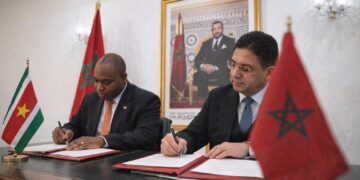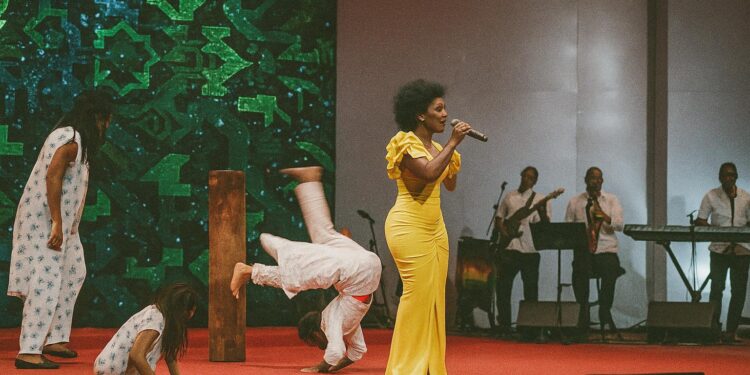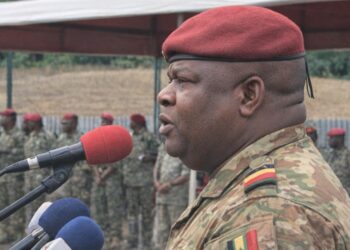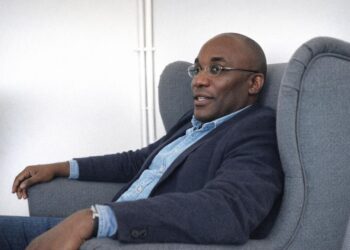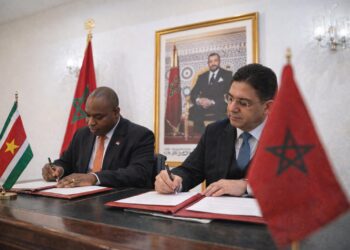Presidential Spotlight on Brazzaville’s Cultural Stage
With a calculated elegance characteristic of Central African statecraft, the 12th edition of the Pan-African Music Festival opened on 19 July under the attentive gaze of President Denis Sassou Nguesso, First Lady Antoinette Sassou Nguesso and key cabinet figures. The ceremony, orchestrated in the heart of Brazzaville, extended far beyond the realm of entertainment, signalling the Republic of Congo’s determination to position cultural production as an axis of economic diversification and regional diplomacy.
Digital-Era Economics Frame the Festival Narrative
The official theme—“Music and Economic Stakes in Africa in the Digital Age”—echoes a continental consensus that streaming platforms, intellectual-property regimes and fintech micro-royalties can recalibrate revenue flows for artists across the continent. According to the African Development Bank, creative industries could generate close to US $20 billion in value by 2030, provided digital infrastructure keeps pace with artistic output. By anchoring the festival in this discourse, Brazzaville tacitly invites investors to interpret harmony not merely as melody, but as market signal.
Slam, Rumba and Acrobatics Craft a Youthful Allegory
Enter Mariusca Moukengue—better known as Black Panthère—whose vocal inflections of slam poetry entwined seamlessly with the sinuous rumba rhythms rendered by choreographer Gervais Tomadiatunga. Rumba itself, inscribed by UNESCO on the Representative List of the Intangible Cultural Heritage of Humanity in 2021, operates here as both heritage and platform (UNESCO 2021). With no intermission, the duo navigated linguistic mosaics from Lingala to French, punctuated by gymnastic pirouettes that challenged the very inertia of the stage. Their piece, aptly christened “The Year of Youth”, proposed an aesthetic manifesto: Congolese millennials, technologically savvy and creatively assertive, are ready for economic autonomy.
Soft Power Woven Through Continental Harmonies
Since its inception in 1995 under the auspices of the African Union, FESPAM has functioned as a convening instrument for over forty African states and a rotating roster of diasporic ensembles. Scholars of cultural diplomacy often cite the festival as a textbook example of ‘orchestra diplomacy’, wherein sonic heritage tempers political dividing lines and elevates Congo-Brazzaville as a mediator of African artistic currents. The presence of diplomats from Luanda to Kigali, alongside executives from streaming giants courting francophone markets, illustrates how melody can persuade where communiqués fall silent.
Government Endorsement and Youth Employment Nexus
Culture Minister Dieudonné Mouyongo reminded delegates that 2023 coincides with the African Union’s Year of the Youth, arguing that the festival’s production ecosystem—staging, digital broadcasting, merchandising—already mobilises hundreds of short-term contracts for local graduates. World Bank data indicate Congo’s creative sector has outpaced national GDP growth by nearly two percentage points over the last five years, a trend attributed in part to state-backed incubation funds and improved fibre-optic penetration in urban centres (World Bank 2022). By foregrounding these metrics, the administration subtly re-calibrates the narrative from patronage to partnership.
A Measured Outlook Beyond the Spotlight
The pyrotechnics have faded, yet the strategic afterglow endures. For diplomats assessing Brazzaville’s policy matrix, FESPAM offers a case study in how cultural capital can reinforce macro-economic ambitions while nurturing national cohesion. The festival’s future influence will hinge on sustained investment in copyright enforcement, broadband expansion and regional touring circuits—components already referenced in Congo’s 2022–2026 National Development Plan. For now, however, the resonant chords of rumba-infused slam testify that, amid global recalibrations, soft power can still dance to a Congolese beat.

